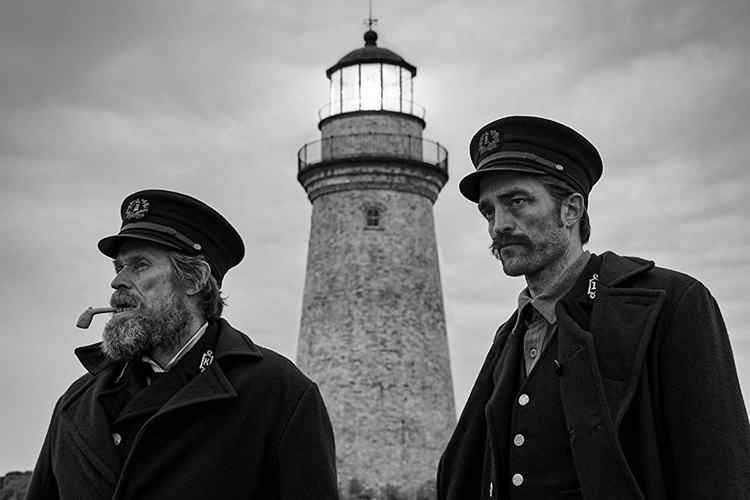Robert Eggers’ 2015 film The Witch (or The VVitch, if you’re into stylized titles) came out at a time when a new genre of horror was emerging: ‘prestige horror’, or ‘elevated horror’. The term was thrown around to describe horror films that were independent, thematically interesting, and scary on an existential level rather than a visceral one. If horror movies were haunted houses, prestige horror would be a museum of mankind’s atrocities with a mirror at the exit. The backlash to the term was (rightly) swift: if some horror is ‘elevated’, what does that make the rest? Chopped, bloody liver? Though The Witch has been cited as emblematic of elevated horror, Eggers has rejected the term, and now he’s proactively declaring that his new film The Lighthouse isn’t a prestige project. Which is true: there’s too much farting in this movie to describe it as ‘elevated’.
Indeed, four-time Oscar nominated actor Willem Dafoe farts before he speaks a single line of dialogue. When he passes this introductory gas, he’s in a cramped bedroom with Robert Pattinson, in a lighthouse, on a remote island. The two men are working as wickies—that’s colloquial for lighthouse keeper—and will have no contact with anyone else for the next month. Thomas (Dafoe) has been working on the island for an untold number of years and become rather eccentric; Ephraim (Pattinson) is only there on a four-week contract and just wants to keep his head down. He soon learns that’ll be hard to do, though, when he looks up one night and sees Thomas getting naked in front of the lighthouse light. Something’s going on, and it’s not sane.
As the two men descend from ‘not sane’ to ‘insane’—as is inevitable in sea-locked isolation—Dafoe and Pattinson’s performances ascend into the annals of legend. It takes control to feign loss of control, and in the practice of acting unhinged, the actors’ hinges have never been better oiled. Dafoe and Pattinson spiral into madness with every part of their bodies—eye-bulging, muscle-tensing, spittle-flying craziness, careening and crumpling like their skin is a grave to claw out of. Their balls-to-the-wall approach is so startling that you’ll genuinely worry for the actors’ mental stability. Theirs is a synergistic folie à deux, one that beckons to and lashes out against those on the other side of the glass.
Eggers’ direction stains that glass with chiaroscuro intrigue. The Lighthouse was shot in black and white, and in a haunting contrast to the lunacy of the central duo, its visual language is stark and controlled. It’s also claustrophobic: the squarish, anachronistic aspect ratio crams the already compact set into even closer quarters, crowding the action in the center of the frame. At the frame’s edges, shadows bleed into the black bars on the sides of the screen, shrouding light sources until whiter shades are negative space. It’s a model example of tone and direction working hand in hand—if the performances are lightning, the suffocating, inverted direction is the bottle.
And yet the screenplay, an integral piece of the cinematic puzzle, lets The Lighthouse down. It’s not a story-driven movie, yet there are stories being told—tales of corrosive guilt, of human dualism, of apocalyptic fervor. But these tales are apparitions that vanish as soon as they appear: Dafoe’s character will gargle a speech through swigs of alcohol, dispensing ideas in a nearly indecipherable dialect, and then those ideas will barely be followed up on. The Lighthouse plays with a number of folkloric themes without committing to them. Consequently, its ideas feel like half measures, appetizers that don’t precede a meal. When the movie’s climactic beats lean into themes that were only suggested sporadically, the missing pieces are sorely felt.
It’s an interesting phenomenon—a movie that’s skillfully directed, marvelously acted, but fails to land on a gut level. Without a screenplay to cohere its most potent ideas, The Lighthouse plays like a director’s reel with a loose concept to tie its scenes together: it exhibits talent bursting from the seams, but it’s more of an intellectual curiosity than a formative experience—something to be impressed by, but not absorbed into.
★★★½ (3.5/5)




